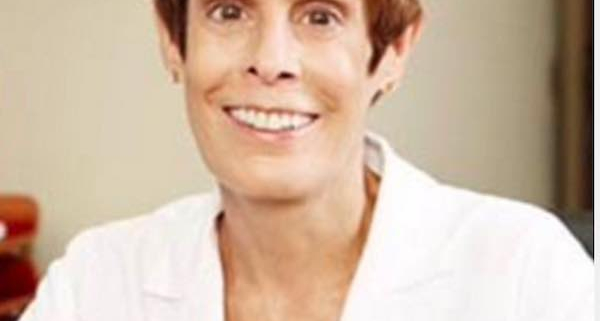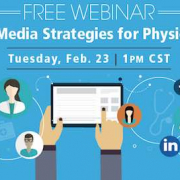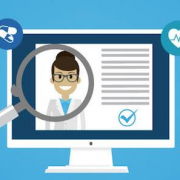5 Ways Social Media Can Enhance Your Physician Practice
There’s no doubt about it: more than ever, physicians and healthcare employers alike are using social media. Today, 65% of physicians use social media for professional reasons and 90% use social sites to connect with family and friends, according to research cited by the U.S. National Library of Medicine National Institutes of Health. These numbers are expected to increase in the coming years.
Social Media can offer physicians tremendous professional benefits, according to Dr. Deanna J. Attai, President of the American Society of Breast Surgeons and Assistant Clinical Professor of Surgery at the David Geffen School of Medicine at the University of California Los Angeles. An ardent proponent of patient education and empowerment, Dr. Attai is a regular contributor to social media sites and is co-moderator for #BCSM – Breast Cancer Social Media – a popular, Twitter-based breast cancer support community. Dr. Attai has shared her thoughts on both breast cancer and social networking in media including The Wall Street Journal, NBC News Health, Los Angeles Times, The New York Times, USA Today, and many, many others.
We were very fortunate to talk social media and medicine with Dr. Attai last week. Below, we share her top five reasons for using social media as a physician.
1. Patient Education
According to the Harvard Gazette, hundreds of millions of people turn to online symptom checkers and other sites to try to self-diagnose, rather than seek medical expertise. These sites can be helpful, but they may also guide patients in the wrong direction. For this reason, Dr. Attai takes it upon herself to create and share accurate medical information via social media.
“Social media offers a tremendous opportunity for patient education,” says Dr. Attai. “As physicians, we all have the experience of patients bringing in articles from the Internet, or things they might have heard from friends or family members. It’s hard for us to sit there and criticize some of the medical information that’s out there if we don’t actually contribute good, credible content.”
Dr. Attai regularly posts articles related to breast cancer on her personal blog, which is hosted on her “home base,” her website. She then shares the information on Facebook and Twitter, along with other articles patients might find useful.
2. Physician Collaboration
Dr. Attai says she also finds social media invaluable for professional networking.
“I’ve found that there is a really incredible network of other physicians out there to collaborate with,” she says. “For example, I’ve worked on some research projects with physicians that I initially only knew on Twitter. With Twitter, you’re following people with common or shared interests, so it’s only natural that you might fall into collaboration, networking opportunities, and things like that. You can have real, meaningful, collegial relationships with people you have never met and you might never meet—especially now that we do so much electronically anyway.”
3. Physician Education
Just as patients can learn a lot from medical information posted by trusted healthcare professionals, the same is just as true for physicians, says Dr. Attai.
“Social media offers physicians a tremendous opportunity for learning,” she said. “I follow a lot of physicians on Twitter who are not in my specialty—for example, medical oncology and radiation oncology. These doctors are in fields related to breast cancer but they’re not breast surgeons, so I enjoy having these colleagues in my online community, and we participate in multidisciplinary tumor boards and things like that.”
“You have these experts available to you at basically a moment’s notice,” she continues.“You’re also getting exposure to how people do things in different areas of the country—there’s a lot of different regional variation. I follow some general surgical oncologists as well. They may not be dealing with breast cancer, but a lot of them are tweeting about medical education and it helps me stay on top of these topics.”
3. Online Reputation Management
Let’s face it: these days, patients are not only researching healthcare topics online, they’re researching you, their physician. And what they will find depends a lot on what you’ve created.
“Patients are going online to look you up before they ever walk in your door, and oftentimes before they even make an appointment,” says Dr. Attai. “And with most physicians, their only online presence is on healthgrades.com or vitals.com, or places like that. You really want to have something that’s your own, something that you control.”
But don’t worry: you don’t need to have a vast Twitter following or blog, or even a website. Putting up a profile on a social networking site for business and/or medical professionals like LinkedIn or Doximity can be a great first step, says Dr. Attai.
4. Supporting Your Patient Community
Illness can be very isolating for patients, and as you know, support groups help people cope. Online support groups can be all the more helpful because of their immediacy and accessibility—especially if an actual physician is moderating the conversation. Dr. Attai knows this firsthand, from her work as co-founder of #BCSM, the volunteer-based Breast Cancer Social Media Community.
“For the breast cancer patients who tune into #BCSM chats, they feel like, ‘Hey, there’s someone like me’!” says Dr. Attai. “How likely is it in your community support group, for example, to find somebody roughly your age, with the same histology, same stage of disease, things like that? BCSM allows people to seek out and find people who are similar to them.”
The BCSM group started in 2011 as a Twitter conversation initiated by breast cancer survivor and BCSM co-founder Alicia Staley. Today, it has grown into a far-reaching organization of patients, caregivers, clinicians, researchers, and family members offering support, guidance, and information to those affected by breast cancer. Dr. Attai moderates weekly Tweet chats with the group every Monday night.
“Even if patients are not experiencing the same stage of the disease, they’re brought together by a shared purpose and shared interest, and there is automatic support,” says Dr. Attai. “That’s something that some patients say they don’t always get from in-person support groups. People may have very supportive friends and family, but sometimes there’s just no substitute for talking to somebody who’s been there.”
Dr. Attai is quick to add that patients aren’t joining the chat for medical advice—something she does not dispense online.
“I haven’t generally found that people are doing this to try and override their doctors recommendations,” she says. “They just want to hear from others who have been through breast cancer and learn from their experience.”
5. Removing Barriers Between Physicians and Patients
But patients aren’t the only ones benefiting from the #BCSM community. Dr. Attai says the chat sessions have been invaluable for her and other participating physicians.
“I just gain so much more insight into what our patients go through,” says Dr. Attai. “We see them in the office for a such short period of time. Many of the patients will talk online about how they do not bring all their concerns to the attention of their doctor, because they’re embarrassed or feel their concerns are trivial.”
“Patients will say, for example, regarding side effects from Tamoxifen, ‘Well I didn’t want to talk about hot flashes to my doctor, because after all he’s trying to save my life and I didn’t want to complain!’ So, our patients aren’t telling us everything, even though we think we have good relationships and we encourage open dialog.”
Dr. Attai says these insights have helped her to become a better physician.
“As physicians, we all feel that we gain just as much—if not more sometimes—than our patients from participating in the patient communities.”
Dr. Attai presents a compelling case for incorporating social media into your physician practice, though she recognizes that many physicians may be wary of doing so, or feel they just don’t have the time. If you’re one of those physicians, stay tuned for our next blog post, in which Dr. Attai will address these concerns. For now, we welcome your thoughts, questions, and any other feedback in the comments section below.











Leave a Reply
Want to join the discussion?Feel free to contribute!